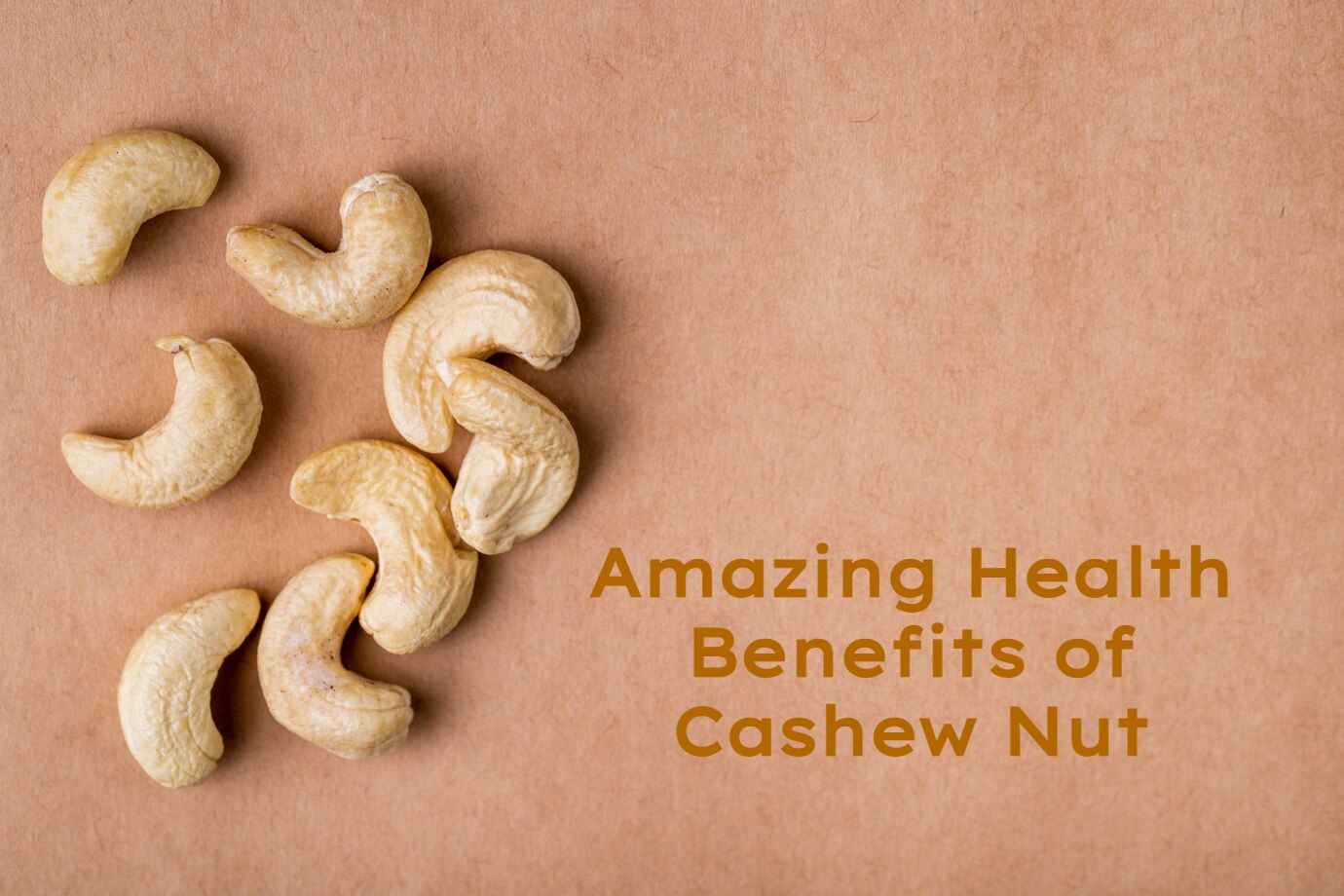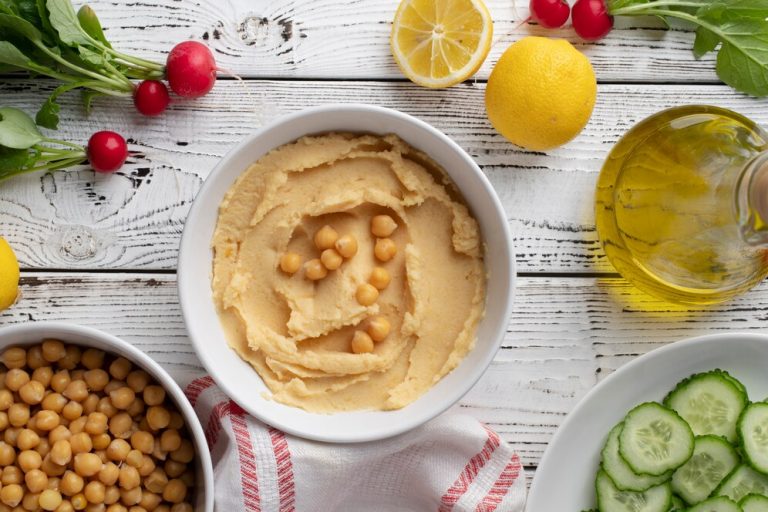Cashew nuts are more than just a delightful snack; they’re packed with an impressive array of health benefits that can boost your well-being in numerous ways. These creamy, nutrient-rich morsels have gained popularity not only for their delicious taste but also for the vitality they add to our diets. Whether you’re munching on them straight from the bag or incorporating them into creative recipes, cashew nuts offer a treasure trove of goodness.
But what exactly makes these little gems so special? From heart health to skin care and even mental wellness, cashews play a remarkable role in supporting various aspects of our health. So grab a handful and join us as we explore all the amazing things cashew nuts can do for you!
What Are Cashew Nuts?
Cashew nuts are the kidney-shaped seeds of the cashew tree, scientifically known as Anacardium occidentale. These delightful morsels boast a rich, creamy texture and a slightly sweet flavor that many people adore.
Often enjoyed raw or roasted, cashews serve as both a snack and an ingredient in various dishes. They can be incorporated into stir-fries, salads, or even blended into smoothies for added creaminess.
What sets them apart is their unique growing process. The cashew nut hangs from the bottom of the cashew apple, which itself is juicy and edible but often overlooked. This fascinating combination makes the cashew not only delicious but also culturally significant in many regions where it’s harvested.
Packed with nutrients, these versatile nuts have earned a spot in kitchens around the world. Whether you sprinkle them over your meals or munch on them straight from the bag, they bring joy to taste buds everywhere!
A Brief History of Cashew Nuts
Cashew nuts have a fascinating history that dates back to their origin in Brazil. Indigenous tribes were the first to discover the nut’s deliciousness, utilizing it for food and medicinal purposes.
In the 16th century, Portuguese explorers took cashews from South America to India and Africa. They quickly adapted well to these regions’ climates, spreading across various continents.
By the late 19th century, cashew cultivation gained momentum in India. The country became one of the largest producers globally, transforming local economies and providing livelihoods for many.
The nut’s unique shape and flavor caught on with people worldwide. Today, cashews are not just snacks; they’re an essential ingredient in countless recipes ranging from savory dishes to desserts.
Their journey reflects centuries of trade routes and cultural exchanges, making them a true global delight enjoyed by millions today.
Types of Cashew Nuts

Cashew nuts come in various types, each with unique characteristics. The most common varieties include Whole Cashews, which are prized for their creamy texture and rich flavor. These are often used in gourmet dishes and desserts.
Then there are the Broken Cashews. Although smaller and less visually appealing, they are just as nutritious. They work wonderfully in baking or cooking where appearance is less critical.
Raw cashew nuts have not been roasted, offering a milder taste and retaining more nutrients compared to their roasted counterparts. Roasted cashews provide that delightful crunch alongside a deeper flavor profile.
You can also find flavored options like salted or spiced cashews. These add an exciting twist to snacking but may contain extra sodium or preservatives. Each type serves its purpose, catering to diverse culinary preferences while packing nutritional benefits.
Nutritional Composition of Cashew Nuts
Cashew nuts are not just a tasty snack; they pack a powerful nutritional punch. A handful of these golden morsels contains essential nutrients that support overall health.
Rich in healthy fats, cashews primarily consist of monounsaturated and polyunsaturated fatty acids. These heart-friendly fats can help reduce bad cholesterol levels.
They are also an excellent source of protein, making them an ideal choice for those looking to boost their intake without meat. This nut provides around 5 grams of protein per ounce.
Cashews boast a variety of vitamins and minerals too, including magnesium, zinc, iron, and vitamin K. Magnesium supports bone health while zinc plays a crucial role in immune function.
Antioxidants found in cashews protect the body from oxidative stress. Their unique blend of nutrients makes them not only delicious but also incredibly beneficial for your well-being.
Cashew Nuts for Heart Health
Cashew nuts are a heart-friendly snack that can boost cardiovascular health. Packed with healthy fats, particularly monounsaturated fats, these nuts help lower bad cholesterol levels.
Incorporating cashews into your diet may reduce the risk of heart disease and improve overall heart function. Their high magnesium content also plays a crucial role in maintaining blood pressure levels.
Moreover, cashews contain antioxidants like vitamin E and phytosterols, which combat oxidative stress. This helps protect the arteries from damage caused by free radicals.
Eating cashew nuts regularly can enhance circulation and support your body’s natural defenses against inflammation. A handful of these delightful nuts is not just tasty; it’s a smart choice for those looking to prioritize their heart health while enjoying a delicious treat.
Strengthening Bones and Teeth
Cashew nuts are more than just a tasty snack; they play a vital role in maintaining strong bones and teeth. Loaded with essential minerals, particularly magnesium and phosphorus, these nuts help fortify your skeletal structure.
Magnesium is crucial for calcium absorption. When you consume cashews, you’re supporting the body’s ability to utilize calcium effectively. This interaction strengthens bones and reduces the risk of fractures.
Phosphorus also contributes significantly to bone health. It works alongside calcium to create a solid framework for bones, ensuring they remain robust over time. Additionally, phosphorus helps maintain healthy teeth by protecting against decay.
Including cashew nuts in your diet can lead to better oral health too. Their nutrient content supports enamel strength, keeping your smile bright and resilient against everyday wear and tear. Enjoying this nut regularly can be an easy step towards healthier bones and teeth while satisfying your taste buds at the same time.
Cashew Nuts and Eye Health
Cashew nuts are not just a tasty snack; they also play a significant role in promoting eye health. Packed with essential antioxidants, especially lutein and zeaxanthin, these nutrients help protect your eyes from harmful blue light.
These compounds work by filtering out the damaging wavelengths of light. This can reduce the risk of developing age-related macular degeneration, a leading cause of vision loss in older adults.
Additionally, cashews contain vitamin E, which is known for its ability to combat oxidative stress. By neutralizing free radicals in the body, vitamin E helps maintain healthy retinal function and overall eye well-being.
Incorporating cashew nuts into your diet can be an enjoyable way to support and enhance your vision while enjoying their rich flavor and creamy texture. Whether added to salads or consumed as a snack, these nuts offer more than just taste—they contribute meaningfully to maintaining good eyesight.
Cashew Nuts for Healthy Skin
Cashew nuts are a powerhouse for skin health. Packed with essential nutrients, they can play a vital role in maintaining youthful and glowing skin.
Rich in antioxidants, cashews help combat oxidative stress. This reduces the appearance of fine lines and wrinkles. Their high content of copper aids in melanin production, contributing to an even skin tone.
Additionally, cashews contain healthy fats that moisturize the skin from within. These fatty acids promote hydration and elasticity, making your complexion look plump and radiant.
The vitamin E found in cashew nuts acts as a natural protector against environmental damage. It nourishes the skin while fighting off harmful free radicals.
For those battling acne or blemishes, cashews may offer relief due to their anti-inflammatory properties. Incorporating them into your diet could lead to clearer, more vibrant skin over time. Enjoying these delicious nuts might just be the secret weapon you need for healthier-looking skin!
Hair Care Benefits of Cashew Nuts
Cashew nuts are more than just a tasty snack; they can work wonders for your hair. Packed with essential nutrients, these nuts provide the building blocks for healthy locks.
Rich in vitamins like E and K, cashews help nourish the scalp. This promotes better blood circulation, encouraging hair growth. The presence of magnesium also strengthens hair strands, reducing breakage and promoting overall resilience.
The fatty acids found in cashew nuts offer deep hydration to dry and brittle hair. They can enhance shine while combating frizz, making your mane look vibrant and well-groomed.
In addition to eating them, you can create nourishing masks using ground cashews mixed with other natural ingredients. This DIY approach delivers added moisture directly to your hair follicles for enhanced softness.
Incorporating cashew nuts into your diet or beauty routine may be a game-changer for achieving luscious tresses. Embrace their benefits and watch your hair thrive beautifully.
Cashew Nuts and Mental Wellness
Cashew nuts are not just a tasty snack; they can also positively impact mental wellness. Rich in magnesium, these nuts help regulate neurotransmitters that influence mood and stress levels.
A balanced intake of nutrients is essential for optimal brain function. Cashews contain antioxidants that combat oxidative stress, which has been linked to anxiety and depression. Including them in your diet may promote emotional stability.
Additionally, the healthy fats found in cashew nuts support cognitive health. They provide energy to the brain while enhancing memory and concentration.
For those looking to boost their mental well-being, snacking on cashews could be an effective strategy. A handful can offer both satisfaction and nourishment without unnecessary additives or sugars.
Cashew Nuts in Pregnancy and Child Nutrition
Cashew nuts are a nutritious addition to the diets of pregnant women and children. Rich in essential vitamins and minerals, they support overall health during pregnancy.
The healthy fats found in cashews can aid fetal brain development. They provide energy without excessive calories, making them an excellent snack choice for expectant mothers.
For growing children, cashews offer protein and important nutrients like zinc and magnesium. These elements contribute to strong immune function and promote healthy growth patterns.
Additionally, the presence of antioxidants helps combat oxidative stress in both mothers and their little ones. Introducing cashew nuts into children’s meals can also foster better eating habits early on.
Whether added to smoothies or sprinkled over salads, these delightful nuts enhance nutrition while satisfying cravings with their creamy texture. It’s crucial to ensure that allergies are considered before introducing any new food into a child’s diet.
Cashew Nuts for Women’s Wellness
Cashew nuts are a fantastic addition to a woman’s diet, offering numerous benefits tailored to unique health needs. Packed with essential minerals like magnesium and zinc, they support hormone balance and reproductive health.
The healthy fats in cashews contribute to glowing skin by maintaining moisture levels. They also play a role in reducing inflammation, which can be particularly beneficial during menstrual cycles or menopause.
Rich in antioxidants, cashew nuts help combat oxidative stress, promoting overall well-being. Their protein content supports muscle strength and energy levels, making them ideal for active women.
Additionally, the presence of iron helps prevent anemia—a common concern among women—ensuring that your body receives adequate oxygenation. Adding cashews into meals or snacks can enhance not just physical health but mental wellness too. Their creamy texture makes them perfect for smoothies or as a crunchy topping on salads.
Cashew Nuts in Vegan and Plant-Based Diets

Cashew nuts are a fantastic addition to vegan and plant-based diets. Their creamy texture makes them an excellent substitute for dairy in various recipes. You can blend them into smoothies, sauces, or even desserts like cashew cream.
Packed with protein and healthy fats, cashews provide essential nutrients without animal products. They help fulfill daily requirements while keeping meals satisfying and delicious.
These nuts also offer versatility in cooking. Roasted or raw, they can enhance salads, stir-fries, or grain bowls effortlessly. Additionally, their mild flavor allows them to complement both sweet and savory dishes alike.
For those looking to boost their nutrient intake further, soaking cashews before consumption increases digestibility and enhances nutrient absorption. This simple step transforms the nutritional profile of your favorite meals.
Incorporating cashew nuts into your diet not only diversifies your food choices but also supports overall health on a plant-based journey.
How Many Cashew Nuts Should You Eat Daily?
Finding the right amount of cashew nuts to consume daily can be a delightful puzzle. Generally, a handful—about 1 ounce or 28 grams—is an ideal serving size. This portion contains approximately 18-20 nuts.
This quantity provides numerous health benefits without going overboard on calories. Cashews are nutrient-dense but also calorie-rich. Moderation is key for those watching their weight.
Listening to your body matters too. If you feel satisfied and energetic after snacking on cashews, you’re likely in the right range.
Consider your overall diet as well; balance is essential for optimal nutrition. Pairing cashews with fruits or vegetables enhances their benefits while adding variety to your meals.
Remember that individual dietary needs vary based on age, activity level, and health goals. Adjust accordingly and enjoy this delicious nut guilt-free!
Sustainable Farming of Cashew Nuts
Sustainable farming of cashew nuts is gaining traction as awareness grows about environmental impact. This approach focuses on methods that protect ecosystems while enhancing productivity.
Farmers are adopting agroforestry techniques, integrating cashew trees with other crops and plants. This diversity improves soil health and reduces the need for chemical fertilizers.
Water conservation practices are also essential. Efficient irrigation systems ensure minimal water waste, making cultivation sustainable in various climates.
Moreover, organic farming techniques reduce pesticide use, fostering a healthier environment for both workers and consumers.
Supporting local communities through fair trade ensures farmers receive equitable compensation for their labor.
By prioritizing sustainability, the future of cashew nut production can be bright while meeting global demands responsibly.







